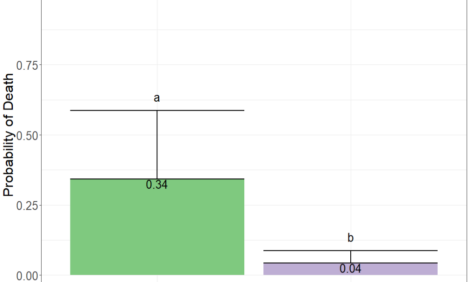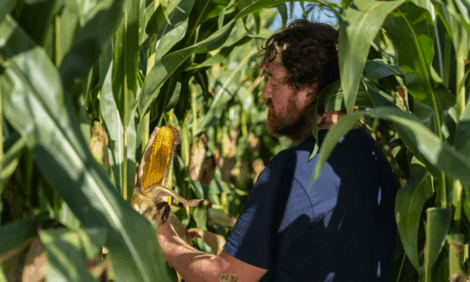



Why Optimal Nutrition through Gestation is Vital
CANADA - A growing body of research is demonstrating the importance of early gestation nutrition on subsequent calves, their health and the resultant beef quality and quantity.The impact of late gestation feeding, especially the third trimester, is well known as this is when 75 per cent of foetal growth occurs. read more
However, state advisers in Ontario have issued a message detailing the impact of good gestation throughout the whole gestation period. Detailing the impact on vital organ development, the ministry recently described early gestation as “critical”. read more
Now scientists know the first heartbeat occurs on day 21, followed by growth of other organs. Testes start development on day 45 and ovary development starts on day 80.
At this point muscle development is lower down on the priorities, although studies have shown early gestation nutrition can affect muscle fibres, impacting on marbling sites.
Similarly, calves on sub-optimal nutrition during this phase produce lower carcass weight, a study found in 2004. This means beef quality and quantity are hit by early gestation nutrition.
Where cows are concerned, animals fed optimally return to breeding quicker and produce better colostrum, which in turn benefits the suckling calf. Furthermore, if the calf is a breeding heifer, trials suggest she will be more likely to calve within the first 21 days.
Colostrum quality is known to be significantly affected by third trimester nutrition. For this reason, Rory Lewandowski, Ohio State University extension agent, has recommended his producers target 9 to 10 per cent crude protein with total digestible nutrients in the 57 to 60 per cent range.
Advising cattlemen several winters ago, Mr Lewandowski said ground forage can be 30 to 35 per cent more digestible, allowing energy levels to be met as more forage can be eaten.
He gave many examples of how the third trimester, in particular, impacts subsequent calf performance and heifer breeding ability.
In his eyes, hay of 8 per cent crude protein and 55 per cent TDN is sufficient for mid-gestation cows, but ‘certainly not’ suitable for a late gestation cow.
Michael Priestley
News Team - Editor
Mainly production and market stories on ruminants sector. Works closely with sustainability consultants at FAI Farms



